By Femi Odugbemi
The theme of this year’s Advertising Industry Colloquium, “From Dialogue to Data: Merging Storytelling, Human Engagement and Techs in Marketing Communication,” speaks directly to a crossroads that our industry—and indeed
our society—finds itself today. We are in an era where technology and data seems to drive all communication strategies, but we are also well-reminded that at the very core of every message that actually moves people is a story. It is in the storytelling that we find meaning. It is in the storytelling that we find memory. And it is in storytelling that we define and discover the future.
That is why ‘dialogue’ is a fundamental part of what connects human beings to each other. Dialogue is storytelling to earn trust and establish connection. Before a brand wins loyalty, it must first earn trust. Before a message is remembered, it must first be felt. In the heritage of African communities, stories were not trivial entertainment. They were the heartbeat of communal knowledge, institutional memory, and value system retention. Elders told stories not just to amuse, but to educate. These were stories rich with proverbs, parables, symbols, each one a seed of wisdom. They taught character, resilience, leadership, and collective responsibility. These stories were transformative because they offered simulation—the knowledge of how to act in specific circumstances. And they also offered inspiration—the motivation to act.
It is this tradition of intentional culturally curated storytelling that we must now revisit.
Because in our age of instant content, viral videos, and fleeting attention spans, we risk forgetting that not all stories are created equal. The stories we choose to tell—
about our people, our brands, our culture, shape how we see ourselves, and
how the world sees us. And the same applies to our brand stories.
In today’s world, engagement has become the holy grail of marketing. Yet, to engage is not simply to capture attention. To truly engage is to connect with emotion, with meaning, and with identity. What drives human engagement is not how often you post, or how many platforms you’re on—but how deeply you
are understood. Nigeria is not a monolith. Our people are not data points. We are diverse, culturally complex, aspirational, and evolving. We want to be seen, to be heard, to be valued. And so, our marketing communication must reflect this human truth. It must respect cultural nuance. It must celebrate everyday triumphs. It must honour dignity and possibility.
We are at an inflection point. And the question before us is not whether technologies like artificial intelligence will reshape the future of brand storytelling in Nigeria—it already is. But who will own that story?
Brand storytelling in this new age of emergent technologies cannot be just about reaching more people — it’s about doing so with depth and authenticity. The most successful brands won’t be those that adopt AI the quickest, but those that root it most deeply in our local cultures. It will be brands using AI to tell stories in regional dialects, infused with native nuances, history and rhythms.
When I first joined the advertising industry over 30 years ago, one of the things that left an unforgettable impression on me was the process of crafting some of the country’s most memorable commercials. What struck me particularly was the fact that the storytelling and narrative expressions were indigenously sourced, culturally connected, and historically inspired. Nearly every brand felt indigenous to us even when we knew they were big global brands by multinationals. This was because their ‘stories’ primarily engaged and embraced our community experiences, our cultures, history, hopes and dreams. The brands spoke in our languages and dialects. The brands celebrated our festivals and saluted our heroes. In short, the brands embraced our identity and stood as one of us.
As Creative Director of Lintas for many decades, the great Ted Mukoro of blessed memory was the master craftsman of that era. Who can forget in a hurry the success of the ‘Weke-Weke’ jingle for Vono foam? or ‘Black thing good o’ for Guinness, or ‘Shine-shine Bobo’ for Star Beer? Who can also easily forget the Peugeot ad that ran with the copy “made for Nigerian roads?” There is no underestimating just how vital this sense of connection was to placing brands at the centre of the emotional experience of being Nigerian. With the brand personality and promise seamlessly integrated into the nation’s culture and worldview. It was doubtlessly the golden age of the most resonant storytelling in Nigerian advertising. And many superbrands emerged out of this culturally connected creativity matrix.
It goes beyond advertising; it is about connecting with identity and memory. It is ‘dialogue’ to inspire trust and build brand alignment. To prepare for this future, we must invest in cultural data, heritage literature, oral histories and languages. We must retrain our creatives to be both AI-literate and culturally grounded. The creative leaders of tomorrow will be both data curators, and cultural custodians.
This brings me to what I believe is the heart of today’s conversation: the transformative power of storytelling. If we are to build tomorrow, we must recognize the role of immersive storytelling not just as a mirror to society—but as a blueprint for what is possible. All human progress has always begun with one person’s capacity to imagine. The cure for a disease, the inventions that have changed everything, the bridge that connected two impossible points — all of it starts first in the mind of someone who dared to believe that what is not yet, can, in fact, be. From Newton and Einstein to the innovations of the digital age, we are the inheritors of someone’s imagination made real. And yet, imagination remains one of the most underinvested capacities of modern society.
Why is that?
Perhaps it’s because we are too often imprisoned by the urgency and limitations
of the present. We are seduced by what is — not what could be — and that fixation ensures we stay exactly where we are. Nowhere is this failure of imagination more apparent than in how we consume and create media in Nigeria today. The media space is saturated with cynicism, recycled despair, and a narrow bandwidth of possibility. It is as if we have accepted our worst stories as the only stories worth telling. Progress requires the courage to reject the obvious and the comfortable. It demands that we imagine differently. That we believe in different outcomes. Imagination demands optimism, not naïveté, but a bold, radical belief that the future is not a continuation of the past, but a canvas awaiting new strokes. That is why I have seized every opportunity in the last few years to speak about imagination engineering and the power of storytelling. It is a call to our creative industries who wield the power of storytelling and image design to lead us forward, to shape the dreams we dare to have as a people. Our storytellers must become visionaries, helping us to see what is not yet visible, to believe in what has not yet happened.
Our contemporary storytellers—particularly in advertising, brand storytelling, social media or heritage media, have much to learn from our forebears. The stories they told were not just descriptive, they were prescriptive. They did not merely capture reality—they curated aspiration.
Our nation today doesn’t just need stories. It needs imagination engineering, visionary storytelling with narratives that showcase heroes and cultivate role models in diverse fields. From groundbreaking entrepreneurs to compassionate political leadership, from scientific innovators to tech disruptors, these are the images our audiences and consumers need to see and engage in the recesses of their minds.
When we showcase characters who rise above odds, who solve real problems,
and elevate their communities, we offer more than content—we offer a mirror of possibility.
A mosaic of inspiration. These stories sow seeds of ambition. They plant resilience.
They nourish imagination. In them, young minds see not just entertainment—but their own potential. And this is where our creative industries across Nigeria, have a unique
responsibility. We must be the torchbearers of this narrative revolution.
We must choose stories that elevate, not trivialize. Stories that illuminate, not exploit. Stories that reframe our country and our cultures, not through pity, but through pride. Let us show the world not just our struggles, but our resilience, ingenuity, and triumph over adversity. Through the lens of storytelling, be it film, music, advertising, or branded content, we can instill a culture of determination and creativity. This is the kind of engagement that builds not just audiences, but communities and nations.
No one can deny the fact today that technology and data are powerful tools.
With data, we can segment audiences, track behaviours, optimize messages. With technology, we can produce more, reach further, and personalise faster.
But here’s the caution: Data without empathy is noise. Technology without humanity is cold. We must not become so obsessed with metrics that we forget meaning. The algorithms can show us what people do, but they cannot tell us why they believe or why they don’t. If we are not careful, our industry risks becoming efficient, but irrelevant.
So the real challenge is not choosing between storytelling and data—but learning how to merge them. Data should inform our creativity, not replace it. Let us use technology to amplify our narratives, not standardize them. This is what the best brands in the world understand. And this is what will define the next era of marketing communication in Nigeria.
The responsibility to build this future cannot fall on creatives alone. Our schools, our regulators, and our industry bodies must rise to the occasion together. Education must evolve. We must teach not just skills, but vision. We must equip our students to not only execute campaigns, but to imagine impact. ARCON’s work in setting standards and fostering collaboration between academia and the industry is both commendable and essential. But we must deepen the ties.
Imagine a communication curriculum co-designed by brand managers and academic instructors. Imagine internship pathways that don’t just expose students, but immerse them. Imagine regulatory frameworks that do not stifle innovation but guide it with clarity. We are not preparing students for jobs, we are preparing them to lead a new ecosystem, where creativity, strategy, and technology converge.
As we embrace the emerging possibilities of immersive technologies like AI in storytelling, we are empowered by such amazing tools that can simulate human voices, generate hyper-realistic visuals, and personalize narratives at unprecedented scale. But we must also confront the darker shadows of this
technological leap. AI has the potential to be a powerful amplifier of our creativity, enabling storytellers to visualize abstract concepts, localize content, and scale engagement like never before. But in the wrong hands, it also becomes a dangerous engine for disinformation manipulation and societal discord.
Already, we have witnessed deep fakes used to impersonate leaders, audio clones that mimic real voices to sow panic, and synthetic media created not to inform, but to deceive. These are not theoretical concerns; they are present dangers. The challenge before the Advertising Regulatory Council of Nigeria today is not simply to regulate advertising, it is to protect the very soul of our public discourse.
In a country already grappling with trust deficits and fragile social cohesion, the use of immersive technologies to confuse, mislead, or incite the public must be met with urgent and uncompromising resistance. So this is the clarion call to the Advertising Regulatory Council of Nigeria – please be aggressive.
Now is the time to strengthen your frameworks. Now is the time to build capacity to monitor and sanction. Collaborate with tech platforms, security agencies, and civic bodies to ensure AI tools are not weaponized against the public good.
Yet in doing so, let us not strangle innovation. The path forward is not to politicize technologies like AI, but to protect its legitimate promise. We must create safe zones where ethical innovation thrives, where immersive technologies are used to train, to teach, to tell better stories, and to imagine futures that are bold and inclusive. The depoliticization of AI begins with transparency and public education. Let people understand not just the risks, but the rules. Let creators
understand the ethics, not just the algorithms.
Let brands lead by example in how they use these tools to elevate trust, not erode it.
ARCON must champion a balanced ecosystem, one that rewards integrity, punishes deception, and ultimately preserves the sacred role of story in shaping society. Because in the age of AI, it is not just our content that is at stake. It is our collective conscience. Sanitizing our social media may be our greatest battle. We must not shy away from the responsibility. And ARCON must Lead with courage and lead with clarity.
I will conclude by highlighting this thought:
The power to shape our future lies not just in our data, but in our narratives.
Brand stories are our stories. It is not enough for brands to position themselves for sales with a tale of what it can do for us. Brand stories must also provoke and incite reflections and conversations around community, around service and around national development. The future of brand marketing will be by innovation that is rooted in identity.
*Being the full text of a keynote presentation at the 3rd Annual Advertising Industry Colloquium by Femi Odugbemi, a Voting Member of the Academy of Motion Picture Arts and Sciences and Founder/CEO of Zuri24 Media, Lagos.



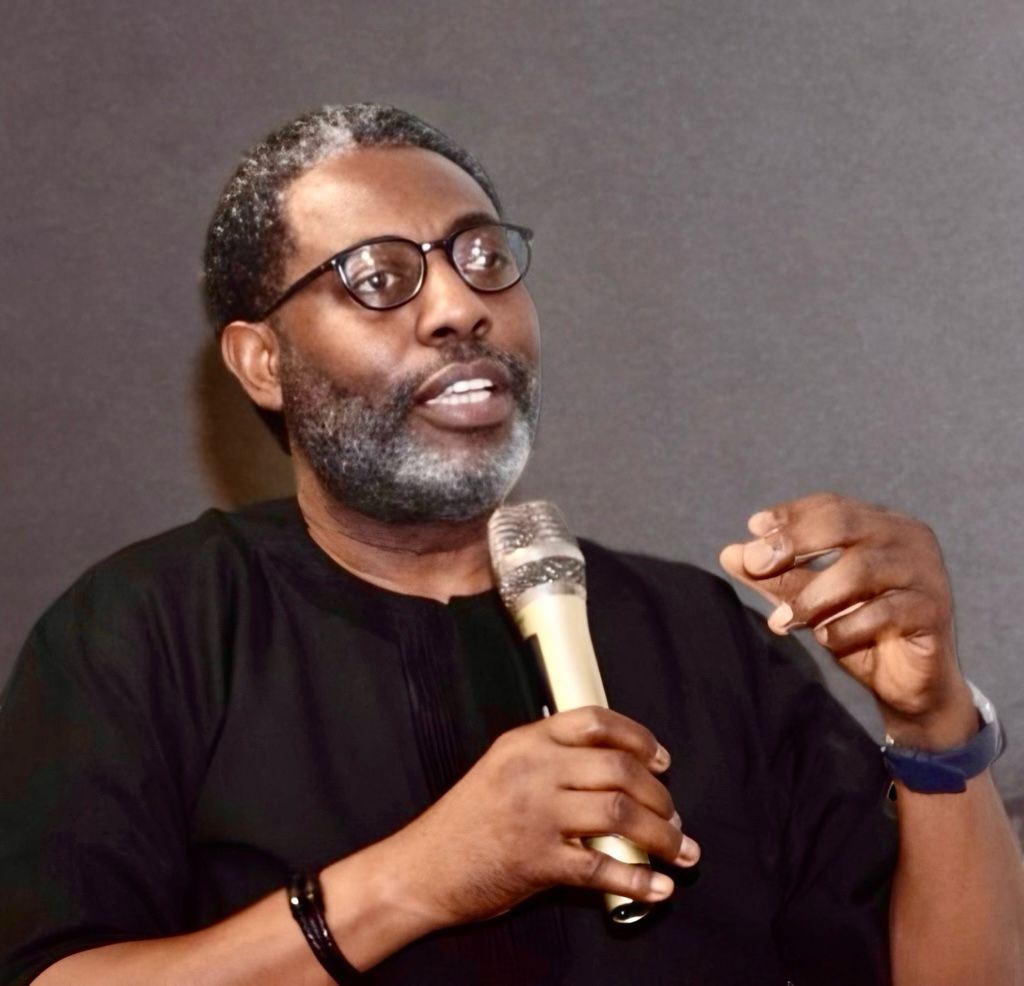


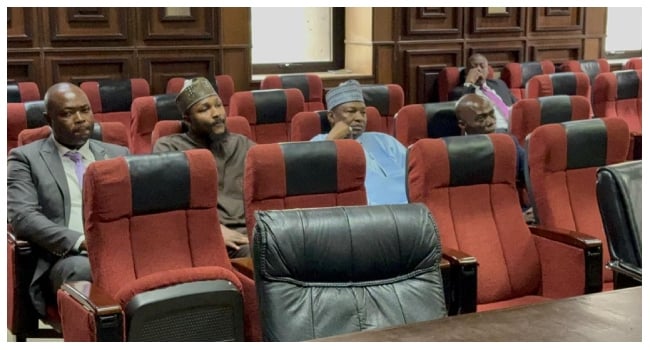
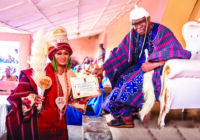

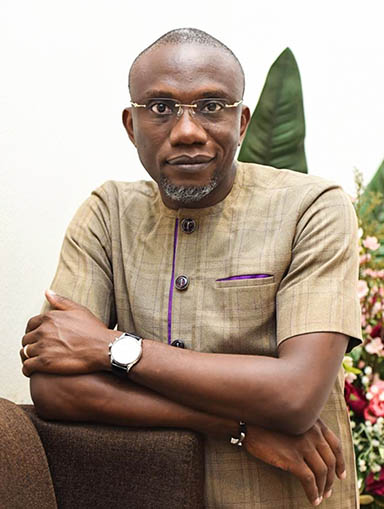
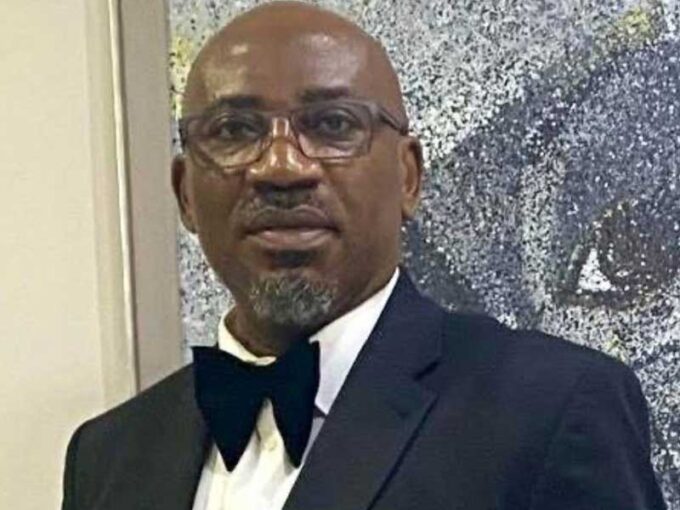
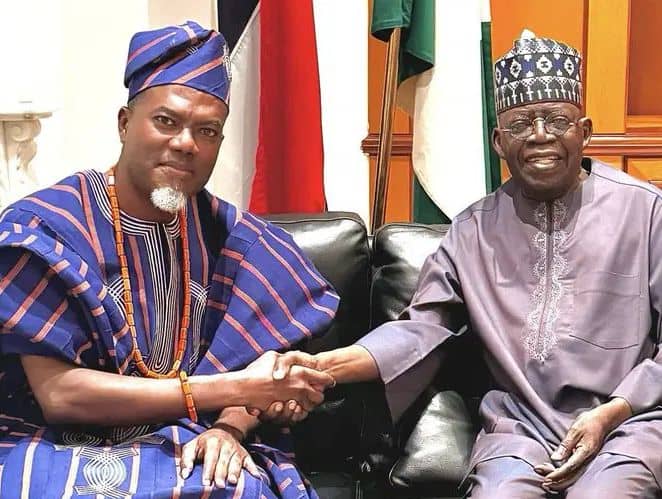
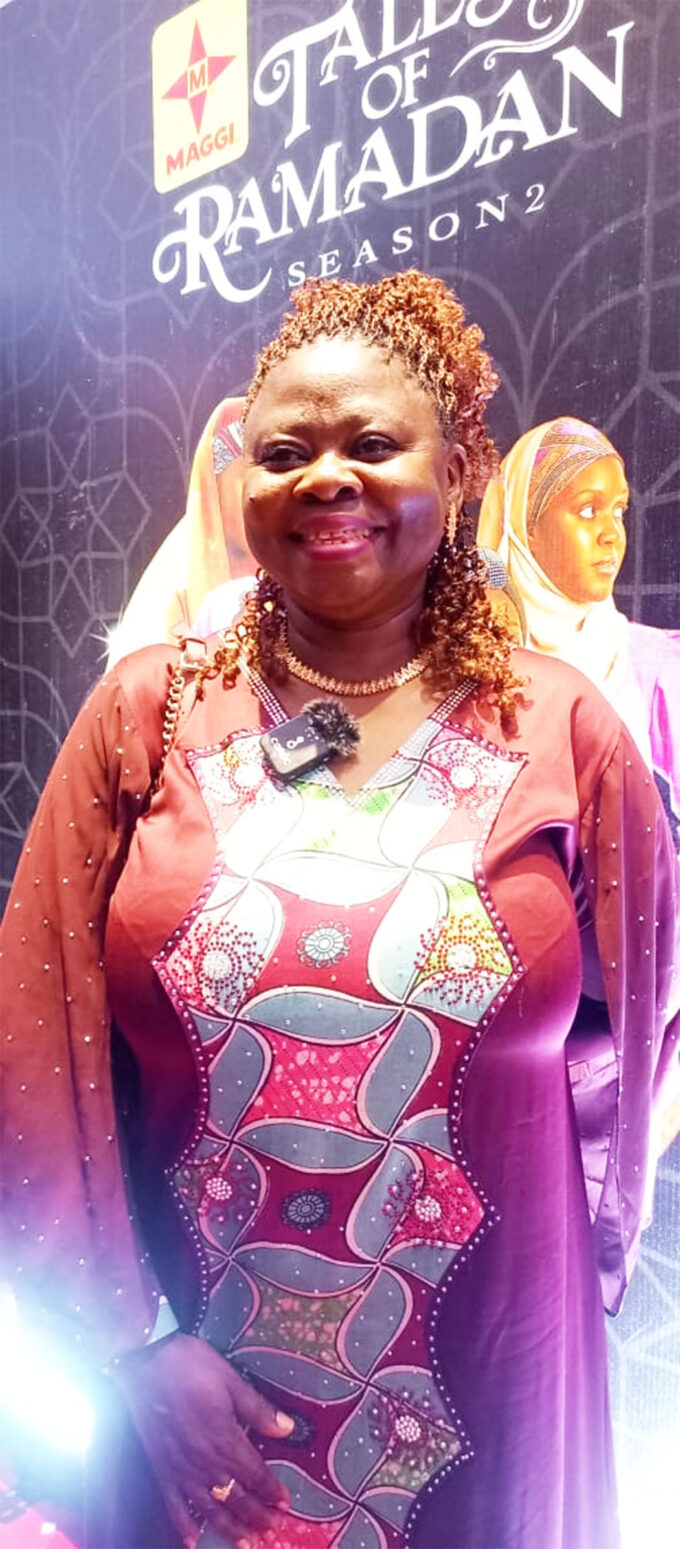





Leave a comment